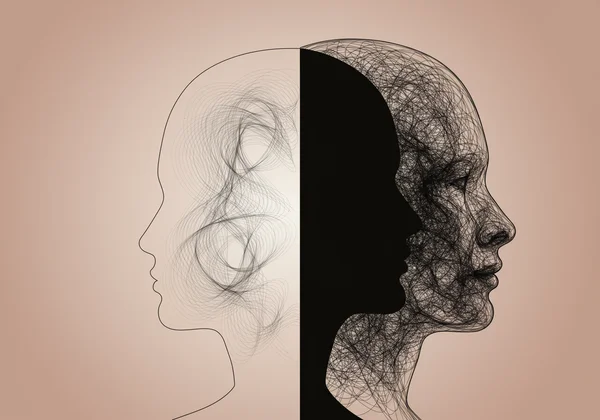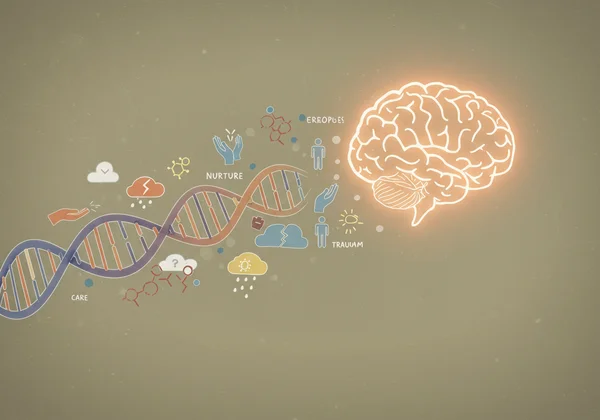Narcissistic Personality Disorder: Symptoms, Causes & Test
August 4, 2025 | By Samuel Bishop
Have you ever found yourself wondering about the fine line between healthy self-confidence and something more complex? The term "narcissist" is used frequently, but understanding the traits of narcissistic personality disorder (NPD) is the first step toward clarity for yourself or a loved one. How do I check if I have a personality disorder? While this question requires professional evaluation for a definitive answer, exploring the signs and symptoms can be an empowering starting point. This guide offers a compassionate look into NPD, its symptoms, causes, and how a confidential screening can illuminate your path forward.
This journey of understanding can begin right now. A preliminary screening can offer valuable insights into your own traits and behaviors. For a confidential and scientifically-informed first step, you can start your self-discovery with our free tool.

Understanding Narcissistic Personality Disorder (NPD) Defined
At its core, Narcissistic Personality Disorder is a mental health condition characterized by a persistent pattern of grandiosity, a constant need for admiration, and a distinct lack of empathy for others. It goes far beyond simple vanity or selfishness; it is a deep-seated pattern of thinking and behaving that significantly impacts nearly every aspect of an individual's life, from personal relationships to professional endeavors.
What is Narcissistic Personality Disorder?
As a Cluster B personality disorder, NPD is grouped with conditions marked by dramatic, overly emotional, or unpredictable thinking and behavior. A person with NPD often has an inflated sense of their own importance, believing they are superior and deserve special treatment. Beneath this exterior of immense confidence, however, lies a fragile self-esteem that is vulnerable to the slightest criticism. This internal conflict often drives many of the behaviors associated with the disorder.
The Core Characteristics of Narcissistic Traits
It is important to recognize that narcissistic traits exist on a spectrum. Many people may exhibit some narcissistic behaviors from time to time without having a full-blown personality disorder. The distinction lies in the pervasiveness, persistence, and distress these patterns cause. Key characteristics often include a powerful sense of entitlement, a preoccupation with fantasies of success and power, and a tendency to exploit others to achieve their own goals without remorse.
Recognizing the Signs: Key NPD Symptoms
Identifying the signs of NPD is crucial for understanding its impact. These symptoms are not just personality quirks; they are consistent patterns that disrupt an individual's ability to form healthy, reciprocal relationships. By learning the diagnostic criteria and observing common behaviors, you can gain a clearer picture of the condition.
DSM-5 Criteria for Narcissistic Personality Disorder
The Diagnostic and Statistical Manual of Mental Disorders (DSM-5), a cornerstone of modern psychology, outlines specific criteria for an NPD diagnosis. A professional diagnosis requires a person to exhibit at least five of the following traits consistently across various contexts:
- A grandiose sense of self-importance.
- Preoccupation with fantasies of unlimited success, power, brilliance, or ideal love.
- A belief that they are "special" and can only be understood by other special or high-status people.
- A need for excessive admiration.
- A sense of entitlement.
- Interpersonally exploitative behavior.
- A lack of empathy; unwilling to recognize the feelings of others.
- Envy of others or a belief that others are envious of them.
- Arrogant, haughty behaviors or attitudes.
Exploring where you or a loved one might fall on this spectrum can be enlightening. An online narcissistic personality disorder test can serve as a helpful initial screening tool.

Common Behavioral Patterns in NPD
These clinical criteria translate into observable daily behaviors. A person with significant narcissistic traits might dominate conversations, belittle people they perceive as inferior, and react with rage or contempt to any form of criticism. They often struggle to maintain long-term friendships and romantic relationships, as their need for validation and lack of empathy eventually pushes others away. Their inability to handle setbacks can lead to intense frustration and blame-shifting.
Unraveling the Roots: What Causes NPD?
Understanding what causes NPD is complex, and there's no single, definitive answer. Research suggests that, like many mental health conditions, its development is likely influenced by a combination of genetic predispositions and environmental factors, particularly during early life. Understanding these potential origins can foster empathy and reduce stigma.
The Role of Genetics and Biology
Evidence indicates that there may be a genetic component to personality disorders. Individuals with a family history of NPD or other mental health conditions may have a higher risk. Furthermore, some neurobiological studies suggest potential differences in brain structures associated with empathy and emotional regulation in those with NPD.

Environmental and Early Life Influences
Childhood experiences play a profound role in shaping personality. In the context of NPD, several patterns have been identified as potential contributors. These can include being subjected to excessive parental praise and adoration that was not linked to reality, or, conversely, experiencing chronic criticism, abuse, or neglect. An unpredictable or unreliable caregiving environment can also lead a child to develop coping mechanisms that later form the foundation of narcissistic traits.
The Ripple Effect: How NPD Impacts Life & Relationships
The impact of Narcissistic Personality Disorder extends far beyond the individual, creating ripples that affect family, friends, and colleagues. The core traits of NPD make it incredibly difficult to build and sustain the authentic, reciprocal connections that are vital for a fulfilling life.
Challenges in Personal and Romantic Relationships
Relationships with individuals exhibiting strong NPD traits often follow a painful pattern. Initially, they may be charming and intense, a phase often referred to as "love bombing." However, once the initial excitement fades, their lack of empathy, need for control, and sensitivity to criticism emerge, leading to emotional manipulation, frequent conflict, and instability. This can be an exhausting and emotionally damaging cycle for their partners.

Navigating Work and Social Environments
In professional settings, some individuals with narcissistic traits may initially achieve success due to their ambition and charm. However, their difficulty with teamwork, inability to accept feedback, and tendency to take credit for others' work can create a toxic work environment. Socially, they may struggle to maintain friendships, as relationships are often viewed transactionally—based on what others can provide for them. A free personality disorder test can be a first step to identifying these challenging patterns.
Beyond Traits: Seeking Help & The Role of a Personality Disorder Test
Recognizing these patterns is a significant step, but the journey doesn't end there. Once you have awareness, the next crucial step is action. While challenging, individuals with narcissistic traits can learn healthier ways of relating to themselves and others through dedicated effort and professional support.
When to Seek Professional Support for NPD Traits
It's time to consider professional help when these behavioral patterns cause significant distress to the individual or those around them. If relationships are consistently failing, if there are problems at work, or if feelings of emptiness, depression, or anxiety are present, seeking a consultation with a mental health professional is a crucial and responsible step.
The Value of a Confidential Online Personality Disorder Test
Before taking that step, many find it helpful to gather their thoughts and gain initial insights. This is where a confidential online screening can be invaluable. A tool like the one offered at Personality Disorder Test is designed to be a private, accessible, and scientifically-informed resource. It allows you to explore your own personality traits in a non-judgmental space, providing a preliminary report that can help you decide on your next steps.
Overview of Therapeutic Approaches for NPD
Treatment for NPD is typically centered on long-term psychotherapy. Therapeutic approaches like Psychodynamic Therapy can help individuals explore underlying insecurities and past experiences. Cognitive-Behavioral Therapy (CBT) can assist in identifying and changing destructive thought patterns and behaviors, helping to develop more realistic expectations of oneself and others. The ultimate goal is to help build genuine self-esteem and the capacity for empathy.
Your Journey to Understanding Narcissistic Personality Disorder
Navigating the complexities of Narcissistic Personality Disorder, whether for yourself or someone you care about, is a journey that begins with knowledge and self-reflection. Understanding its definition, symptoms, and impact is a powerful act of compassion. Remember, these patterns are deeply ingrained, but they are not insurmountable.
While an online screening tool offers valuable self-discovery, remember it's not a substitute for a professional diagnosis. If these traits resonate and are causing distress, reaching out to a qualified therapist is the most effective next step.
Ready to take that first, confidential step toward clarity? Take our free personality test today to receive your initial insights and begin a meaningful journey of self-awareness.
Frequently Asked Questions About Narcissistic Personality Disorder
How do I check if I have a personality disorder?
While only a licensed mental health professional can provide a diagnosis, a great first step is self-reflection. Using a confidential and scientifically-informed screening tool, like a free personality disorder test online, can give you preliminary insights into your traits and help you decide if you should seek professional advice.
What are the common signs of NPD?
The most common signs include a grandiose sense of self, a persistent need for admiration from others, a profound lack of empathy, a sense of entitlement, and extreme sensitivity to criticism. These patterns are typically long-standing and affect many areas of a person's life.
What can trigger a personality disorder?
Personality disorders are not "triggered" in a single moment but develop over time from a complex interplay of factors. These include genetic predispositions, brain chemistry, and crucial environmental influences from childhood, such as trauma, neglect, or inconsistent parenting styles.
How do people with personality disorders behave?
Behavior varies greatly depending on the specific disorder. However, a common thread is a persistent, inflexible pattern of inner experience and behavior that differs markedly from the expectations of one's culture. This often leads to significant challenges in relationships, emotional regulation, and maintaining a stable sense of self.